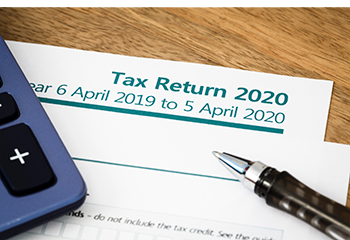Millions of Americans already received their economic impact payment. But what if you’re still waiting or your payment was for an incorrect amount?
 Here are some common scenarios why you may not have received your payment, or the payment you did receive was for an incorrect amount, and what you can do.
Here are some common scenarios why you may not have received your payment, or the payment you did receive was for an incorrect amount, and what you can do.
- Your payment was sent to a closed bank account. If you didn’t update your banking information or mailing address before your payment was processed, your money will probably end up in the wrong location.
What you can do: You probably must wait. If your bank account on file with the IRS is closed or no longer active, the bank will reject the stimulus payment deposit and you will be issued a physical check to the address the IRS has on file for you.
- Your check was sent to a wrong address. The IRS will send stimulus checks to the mailing address listed on your most recently-filed tax return. The IRS will also mail a letter with information about how and where the stimulus payment was made, but this letter will go to the most recent address on file.
What you can do: Change your address on file with the IRS by filing Form 8822. While it won’t solve your immediate problem, your change will correct future issues. In the meantime, keep tracking the status of your payment by visiting the website Get My Payment. You can also try and contact the new people who live at your old address.
- You didn’t get paid for your dependents or you think your check amount is incorrect. You are certain that you should have received a full $500 payment for each qualifying dependent and the payment was either not received or was for an incorrect amount.
What you can do: If you did not get the full amount you think you should have received, you will be able to claim the additional amount when you file your 2020 tax return.
- You received a check for a deceased relative. With more than 300 million people living in the U.S., it probably shouldn’t be a surprise that some of the stimulus checks were mailed to deceased individuals. Unfortunately for living family members, you can’t keep this money.
What you need to do: You should open the check, write VOID on the check and then return it to the IRS. If the payment was via direct deposit or a check received from the IRS was already cashed, you should write a personal check to the IRS to return the money.
Receiving the wrong amount of money in your stimulus check or not receiving a check at all can be very frustrating. But be reassured the IRS is doing everything it can to help you get the correct amount of money that you deserve.
More information: If you have other questions or concerns, the IRS has a question and answer resource. Click here to read through the IRS Q&A.


 Numerous new laws provide economic relief to individuals and businesses hardest hit by this year’s pandemic. This much-needed financial assistance, however, comes with a few strings attached.
Numerous new laws provide economic relief to individuals and businesses hardest hit by this year’s pandemic. This much-needed financial assistance, however, comes with a few strings attached.